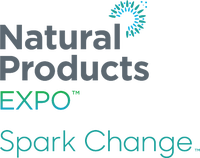Why Harmless Harvest takes an ecosystem-based approach to business
The leader in regenerative coconut agriculture (yes, that's a thing) dives into its sustainability efforts and Fair for Life certification.

When it comes to mission-driven businesses, a few things are necessary. The willingness to track one's progress, adherence to certain external standards and a commitment to long-term outcomes. Harmless Harvest is a shining example in the natural products industry of a brand that is making serious efforts along every step of its supply chain to treat workers fairly and keep its products as earth-friendly as possible. Read on to learn all about the company's impressive progress in these areas.
How does being Fair for Life certified affect Harmless Harvest’s mission?
At Harmless Harvest, our mission is “To farm, craft and share remarkable coconut products that create a natural demand for sustainable farming, better business practices and community impact.” Fair for Life is just one way we pursue that mission.
We were the first coconut water to be Fair for Life certified and are committed to rigorous and independent standards for fair trade and social progress within our supply chain. We operate on an ecosystem-based approach, considering our impact from seed to shelf and the communities we operate in and serve are an important part of that. Fair for Life helps provide standards, transparency and accountability to our efforts.
What are some highlights of Harmless Harvest’s sustainability efforts?
We are constantly making advancements in our sustainability efforts, with a number of exciting milestones reached this year. Recently, we achieved zero coconut waste at our manufacturing facility in Thailand, meaning we no longer send any coconuts to landfill.
We’ve found value-add ways to upcycle the whole coconut, whether it’s using the delicious meat in our plant-based dairy offerings like our cup yogurt, or converting the husks to plant-based consumables or biofuels. This is an exciting step in our journey to do less harm, more good. Additionally, we recently have begun bottling our coconut water using a minimum of 30% rPET. We are committed to getting to 100% rPET as soon as we are able, and this is a significant step toward that goal.
Can you elaborate on the importance of ethical ingredient sourcing for the business?
Ethically sourced and organically farmed coconuts are incredibly important to us at Harmless Harvest. We wouldn’t be able to make our perfect coconut water or delicious plant-based yogurts without starting with the best possible ingredients. That includes not only how these coconuts are grown, but also how they are harvested.
Our Fair for Life commitment and certification ensures that we are treating everyone in our supply chain fairly. What’s more, since a portion of our sales support the Fair for Life fund, we are also actively involved in giving back in the communities in which we operate, whether that’s by providing PPE to our farmers during the pandemic, or bringing mobile health clinics and dental checks to these communities, to name just a few things.
How have consumers responded to Harmless Harvest’s social and environmental initiatives?
We’ve really only begun in sharing all the great work we are doing in pursuit of our mission. While we share pieces of our progress in places like our packaging and our website, we are working to more comprehensively share our progress on social media and in our marketing.
This past earth week, we shared exciting details about our rPET, zero waste and regenerative agriculture journeys on our Instagram stories and saw really positive responses from consumers.
We know the Harmless Harvest consumer really cares about their environmental impact, and we look forward to bringing them deeper into our efforts through marketing and engaging social conversations in the coming months.
Mission is more important than ever to consumers—how does your brand spark change?
We recognize that living into our mission isn’t just about talk or short term action. It’s a long term commitment and journey. If we are successful in the long run, we will deliver on our vision of a world where the climate impact from coconut farming is net positive. That’s why in addition to our rPET and zero waste commitments, among many other sustainability initiatives, we announced this year the commencement of the Regenerative Coconut Agriculture Project (ReCAP).
In partnership with the Danone Ecosystem Fund, the Fair for Life fund and Deutsche Gesellschaft für Internationale Zusammenarbeit (GIZ) GmbH, ReCAP is a 3-year project to develop and deploy a model for regenerative coconut agriculture by partnering with farmers. This is a big commitment with ambitious goals to train 350 farmers in central Thailand and begin the conversion of the coconut farming practices to be sustainable regenerative organic ones. There’s lots of work to do, and we’re excited to spark change in the way our industry operates by leading here.

Find the latest products.
Get sales sheets and other downloadable information.
Connect with the sales team.
Head to the Product Discovery Zone.
About the Author(s)
You May Also Like




